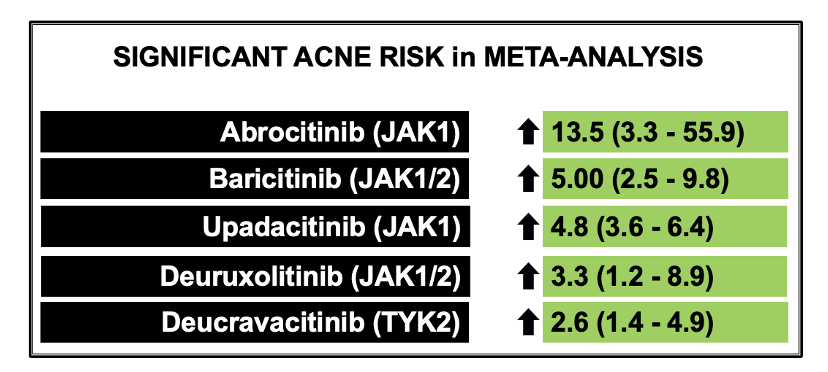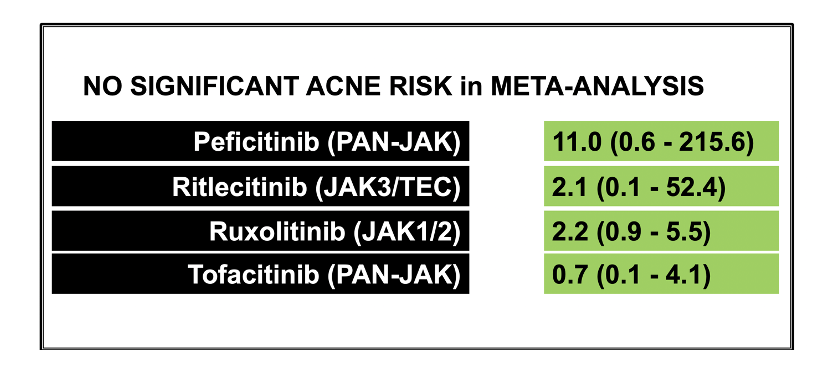What is the risk of acne with JAK inhibitors?
Meta-analysis Highlights Different Risk with Different JAKS. Good News for JAK3
Download PDF Version of this Article
JAK inhibitors are increasingly used for a variety of dermatological conditions. In the hair loss world, we are using JAK inhibitors for treating alopecia areata as well as some scarring alopecias. Acne is a recognized side effect of some of the JAK inhibitors. We have reviewed the risk of acne in the BRAVE-AA baricitinib trials in the past. (See link below)
Do different JAK inhibitors have different risk of causing acne?
Authors of a new study set out to review the risk of acne with JAK inhibitors. To do so, the authors performed a systematic review and meta-analysis of 25 unique phase 2 and phase 3 studies with a sample size of 10,839 subjects. Participants in these studies either received a JAK inhibitor or a control.
The results showed that acne was a side effect in 6.2% of JAK-treated patients compared to 1.3% of controls. This meant that treatment with a JAK inhibitor was associated with a 3.83 (95% CI, 2.76-5.32) fold increased risk of developing acne compared to controls.
Different JAK Inhibitors Have Different Acne Risk
Interestingly, the various JAK inhibitors had different risk for acne. JAK inhibitors with the highest odds ratios for acne development were (in order) abrocitinib, baricitinib, upadacitinib, deuruxolitinib and deucravacitinib. Specific risk via odds ratios is shown below with their confidence intervals. Abrocitinib, for example, was found to have a 13.5 fold increased risk of acne compared to controls.
Some JAK Inhibitors Not Found to have Increased Risk
Some JAK inhibitors were not found to have increased risk across multiple studies. For example, there were no differences in acne incidence in pan-JAK inhibitors like peficitinib and tofacitinib or JAK3-specific inhibitors like ritlecitinib.
Discussion
This is an interesting study. It’s really important that we understand differences in side effects across different JAK inhibitors. Right now, hair specialists tend to do a lot of lumping of class effects when counselling patients about what sort of adverse events they might experience if they were to use a certain JAK inhibitor drug. This study teaches us that some JAK inhibitors probably carry much different risks for acne than others.
REFERENCE
Martinez J et al. Janus Kinase Inhibitors and Adverse Events of Acne: A Systematic Review and Meta-Analysis. JAMA Dermatol. 2023 Oct 18:e233830.
This article was written by Dr. Jeff Donovan, a Canadian and US board certified dermatologist specializing exclusively in hair loss.



